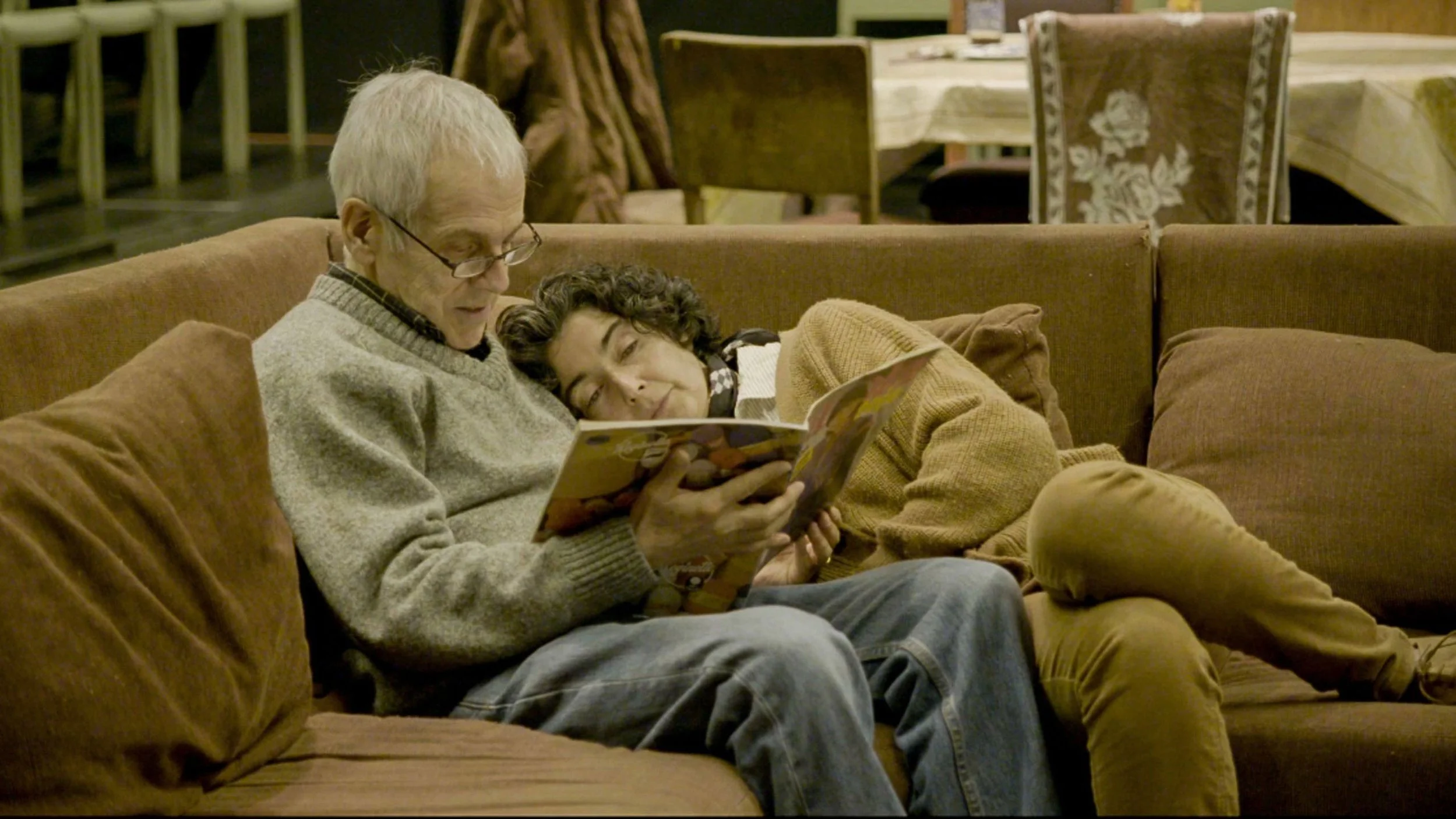The Eternal Memory
Winner of the Grand Jury Prize at Sundance, Maite Alberdi’s Chilean documentary portrays devotion in the face of Alzheimer’s.
It is only fair to preface this review by disclosing that I am not drawn to films that portray people suffering from incurable health issues be they physical or mental. Just occasionally – but very, very rarely – I come across a film of that kind which transcends what I regard as an almost insuperable limitation in such material, the fact that it is inherently depressing. Back in 2021 the all-too-little known A Space in Time, a film which showed a family confronted by muscle wasting disease, did succeed in achieving just that. Sadly, I cannot say the same for Maite Alberdi’s documentary The Eternal Memory. That is my view at least, despite the fact that there is one aspect to it that is admirably communicated and positive.
Made in Chile, this is a portrait of a couple who spent some twenty-five years together. He is Augusto Góngora who was a TV journalist of note who dared to be outspoken during the Pinochet regime and who also became a noted author. She, seventeen years his junior, is Paulina Urrutia, an actress and former Chilean Minister of Culture. Their special bond was confirmed when after many years together they decided in 2016 to get married. He, however, had by then been diagnosed with Alzheimer's disease and his condition only fortified Paulina in her sense of duty to him. Their love for each other shines through the film and that transparency ensures that The Eternal Memory is genuinely touching and offers something to celebrate.
However, we are here dealing with a standard-length feature film and one that concentrates well nigh exclusively on Augusto and Paulina seen mainly in their house or in old footage comprising home movies and official archive material. The latter reflects Augusto’s past career but ignores his private life prior to settling down with Paulina (he has two children from an earlier relationship, one of whom puts in what is a very brief appearance). Alberdi’s chosen approach means that the central focus is always on life with a partner suffering from Alzheimer's so that Paulina never knows when Augusto will know who she is or even who he is. With patience and with love she seeks to rekindle his memories.
If the extent of Augusto’s self-awareness varies, so too do his moods. On certain days despite recognising his state he is keen to go on living, but at other times he is ready to die. Even when he has to be told who Paulina is, he still for the most part appreciates that she is a woman showing great concern for him. The film’s most painful scene is one in which his despair so dominates him for a few hours that he can no longer be considered himself. The couple have patently gone along with this intimate filming but the old footage jumping back-and-forth in time although intended in part to reflect a happier past is too piecemeal to offer any effective counter to the grim reality of recent times. The film circles round their situation as it had become and, although I understand that filming took place over four years, there is no sense here of the passing of time, no sense of their story of moving forward however sadly.
The one way in which The Eternal Memory does develop is to compare Augusto’s situation with that of Chile itself. The film’s title comes close to echoing that of a book co-authored by Augusto which appeared in 1989, Chile: The Forbidden Memory. If the film’s personal record has shown Augusto struggling to retain his sense of identity despite having Alzheimer's, the book looks back on the Pinochet era and its horrors to declare the importance of memory in this context because only by remembering and by rebuilding emotional memory can Chile recognise its own true identity. This parallel adds a layer to the film but, despite earlier political references in the flashback footage, it is only in the film’s last ten minutes that detailed references to the book bring the point home in this way.
The Eternal Memory steers tear of sentimentality and could now be thought of as a commemoration of Augusto Góngora given that he died on 19th May 2023 age 71. It certainly provides clear evidence of the great love shared by him and by Paulina but I still find it at heart a work in which the positives within it are far outweighed by the negatives. But, if my attitude in the face of such subject matter feels alien to your own, you should certainly take note that the film has won several awards including the Grand Jury Prize at the 2023 Sundance Film Festival.
Original title: La memoria infinita.
MANSEL STIMPSON
Featuring Augusto Góngora, Paulina Urrutia.
Dir Maite Alberdi, Pro Maite Alberdi, Juan de Dios Larraín, Pablo Larraín and Rocío Jadue, Screenplay Maite Alberdi, Ph Pablo Valdés and David Bravo, Ed Carolina Siraqyan, Music Miguel Miranda and José Miguel Tobar.
Micromundo/Fabula/Inmaat Productions/Chicken & Egg Pictures-Dogwoof Releasing.
85 mins. Chile. 2023. UK Rel: 10 November 2023. Cert. 12A.


